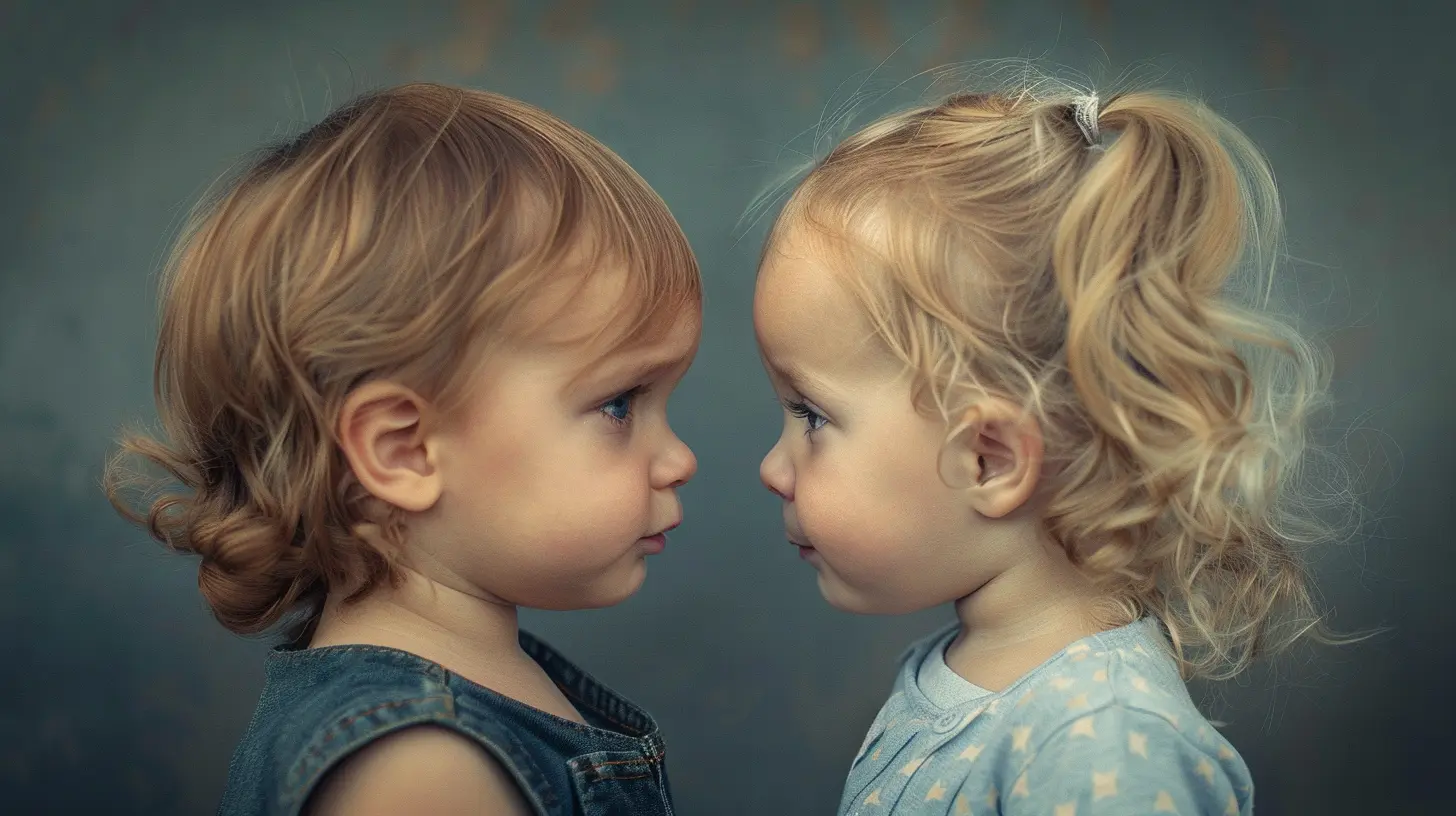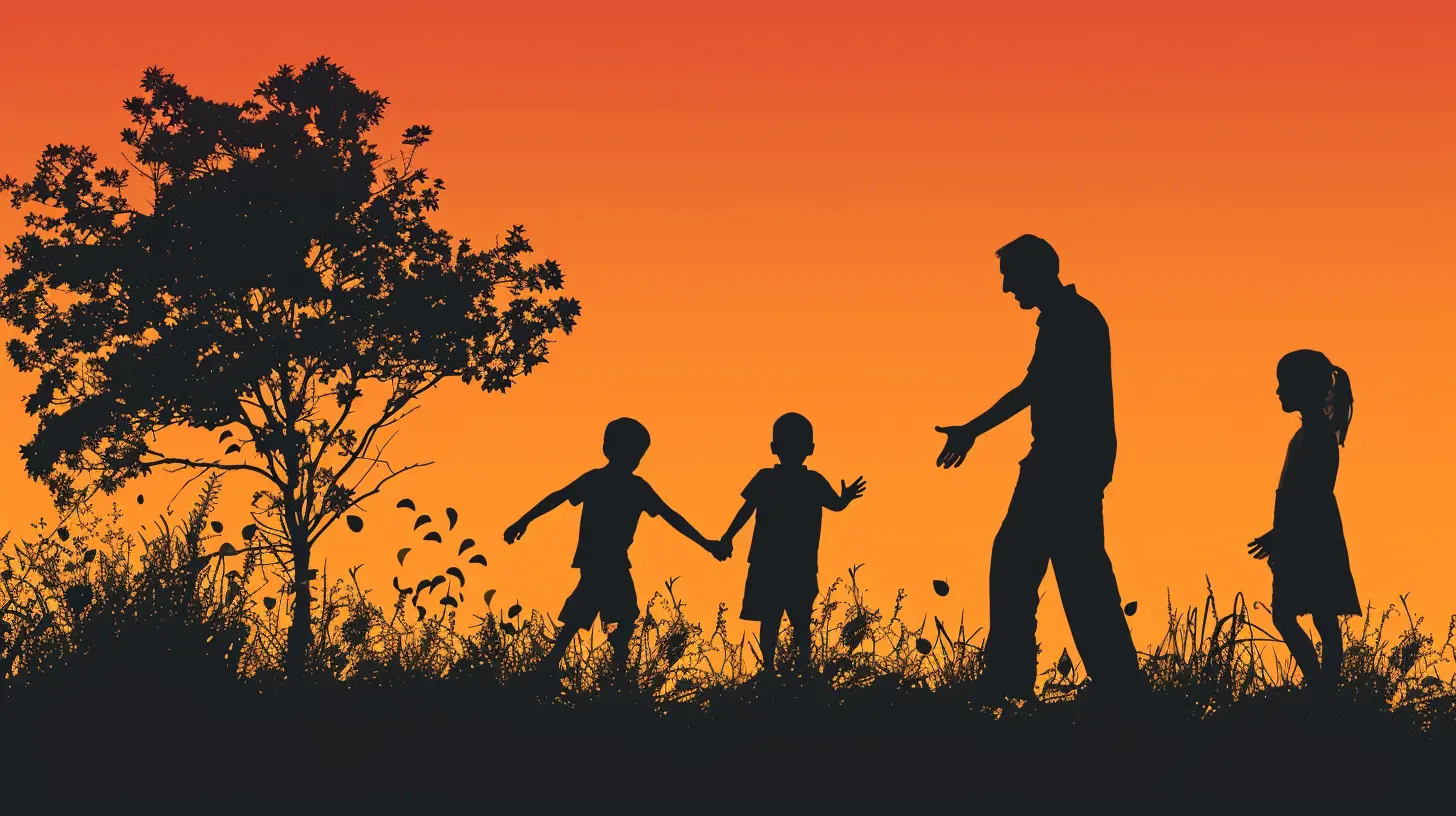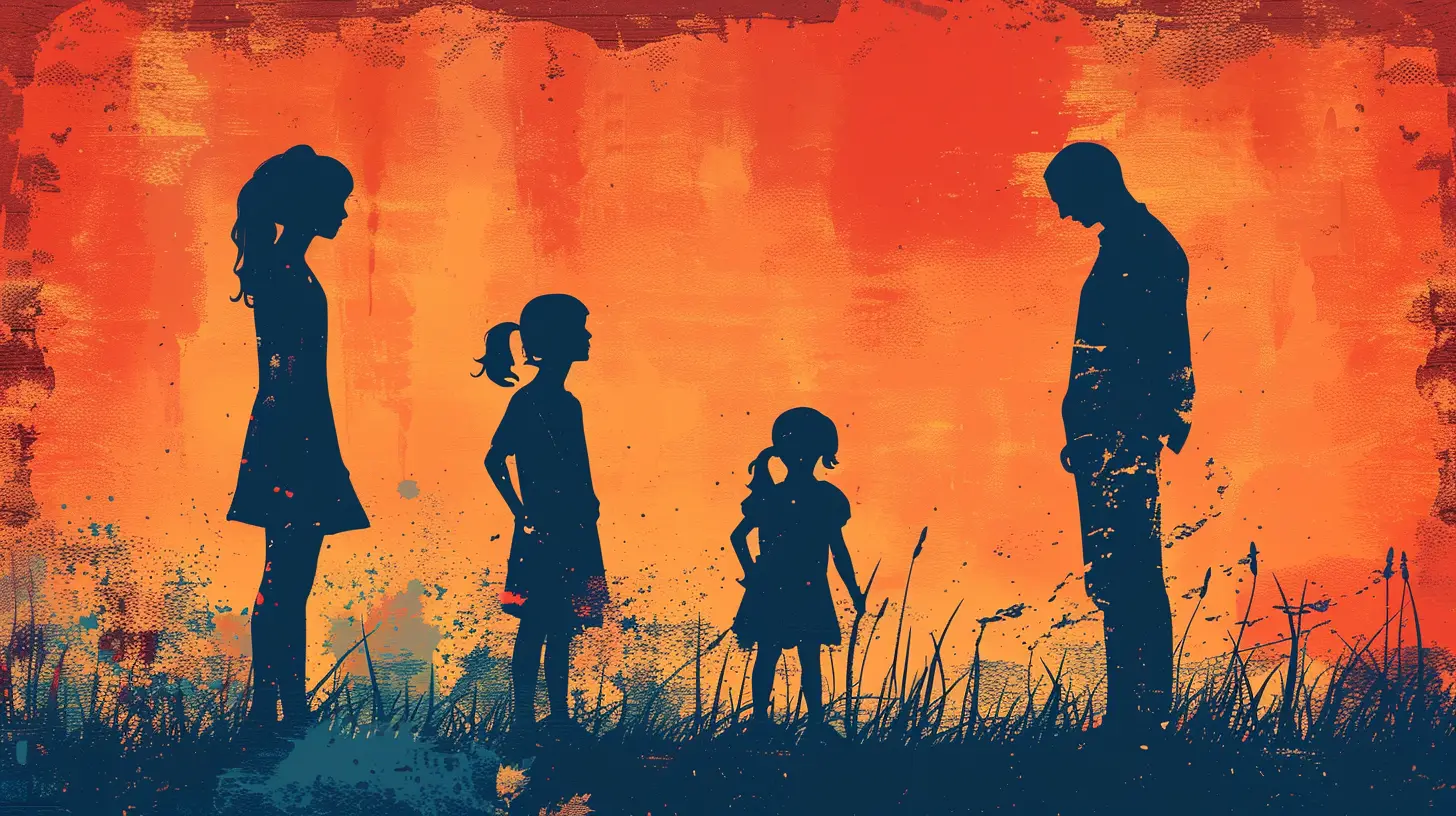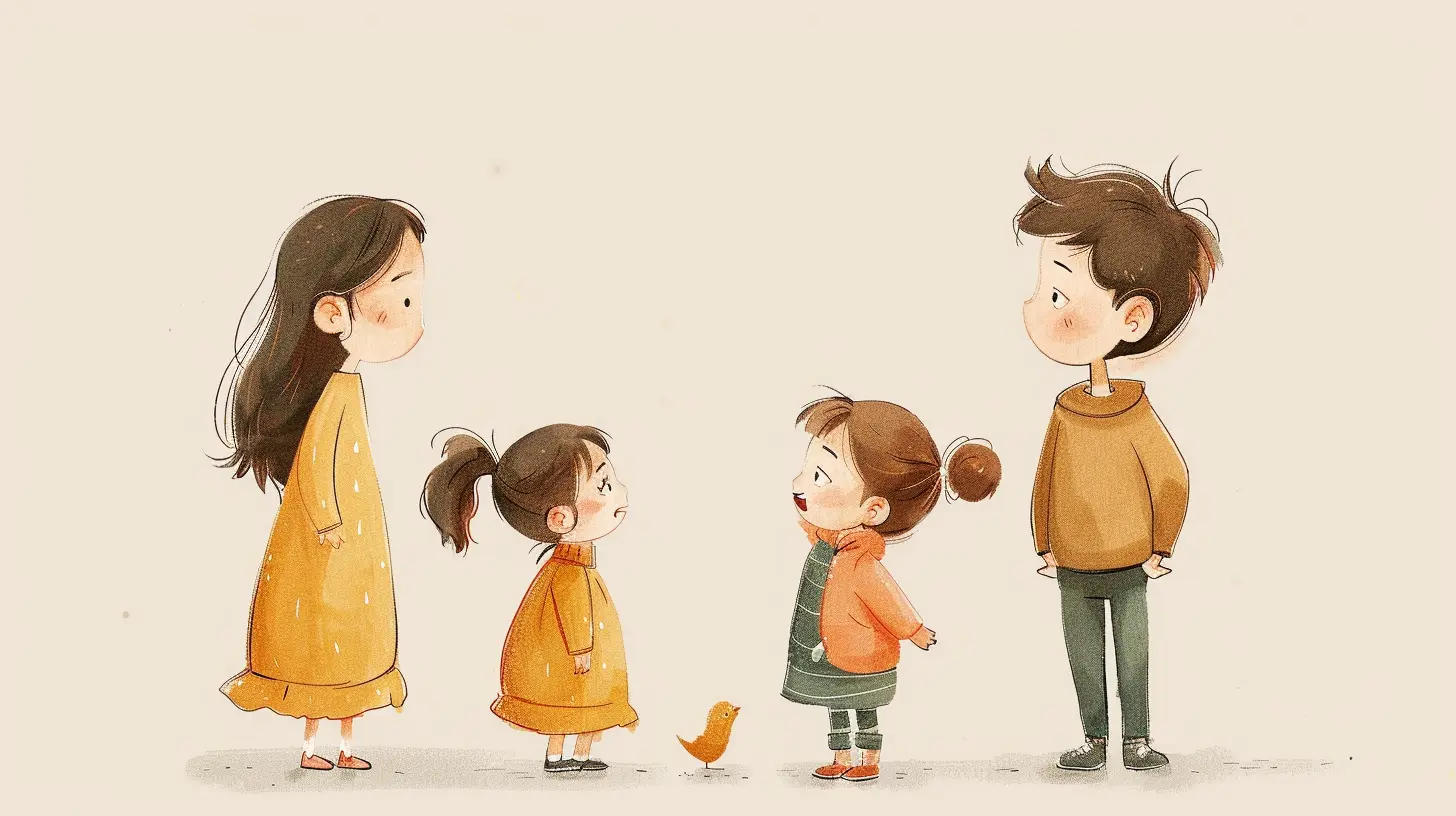How Parenting Styles Affect Your Child's Social Skills and Friendships
12 September 2025
Let’s be real—parenting is one of the most rewarding AND confusing journeys out there. You’ve probably asked yourself more than once: “Am I doing this right?” Especially when your child is struggling to make friends or navigate tricky social situations. Guess what? You’re not alone.
Here’s the truth: the way you parent has a massive influence on how your child connects with others. From handling playground disputes to building lifelong friendships, your parenting style plays a starring role. So, if you’ve ever wondered how your daily interactions, discipline tactics, or bedtime chats shape your child's social world… stick around.
This isn’t about guilt-tripping you. It’s about understanding how your style affects your child’s ability to thrive socially—and how you can tweak things to set them up for success.
What Are Parenting Styles, Anyway?
Before we dive into the deep stuff, let’s get the basics out of the way. In psychology, parenting styles are usually broken down into four main types:1. Authoritative
2. Authoritarian
3. Permissive
4. Neglectful (Uninvolved)
Each of these styles has its own unique impact—good or bad—on how a child grows emotionally, mentally, and socially. And guess what? No one fits perfectly into one box. Most of us are a mix, and that’s totally normal!
Authoritative Parenting: The “Let’s Talk About It” Approach
What It Looks Like:
- Set clear rules and expectations- Warm, responsive, and supportive
- Encourages independence but holds boundaries
How It Impacts Social Skills:
Kids raised with authoritative parenting tend to have the best social outcomes. Why? Because they grow up with structure AND emotional support. These children learn to express themselves with confidence, listen to others, resolve conflicts calmly, and set healthy boundaries.Basically, authoritative parents are like Wi-Fi routers with great coverage—you set clear limits, but you’re always “on” emotionally.
Friendship Outcome:
Children in this environment usually attract friendships easily. They’re empathetic, good conversationalists, and they’re not afraid to stick up for themselves or walk away from toxic relationships.
Authoritarian Parenting: The “Because I Said So” Method
What It Looks Like:
- High expectations, low responsiveness- Strict rules, little warmth
- Little room for open dialogue
How It Impacts Social Skills:
Authoritarian parenting might get short-term obedience, but it often damages long-term social confidence. These kids may follow rules like champs but struggle emotionally. They might feel anxious about saying the wrong thing or avoid conflict altogether.Some tend to become either people-pleasers or rigid rule-enforcers, both of which can lead to rocky friendships.
Friendship Outcome:
Children raised this way might have fewer close friends or find it hard to open up. They may either dominate social situations or shy away from them entirely. It can be hard for them to trust others because they’ve never been taught how to communicate feelings openly.
Permissive Parenting: The “Cool Parent” Vibe
What It Looks Like:
- Warm and accepting- Few rules or expectations
- Avoids confrontation and discipline
How It Impacts Social Skills:
Now, being the “cool” parent might win you some brownie points in the short term, but long term? Not so much.Kids raised in permissive homes often struggle with self-control and boundaries. Since they rarely hear “no,” they might expect friends to bend over backward too. If they’re used to getting their way, it can seriously backfire in friendships.
Friendship Outcome:
They might start strong in social situations—charming and likable—but issues pop up when they can’t handle rejection, criticism, or sharing the spotlight. Others may see them as bossy, overly sensitive, or even entitled.
Neglectful (Uninvolved) Parenting: The “Every Kid For Themselves” Situation
What It Looks Like:
- Little emotional involvement- Minimal supervision or guidance
- Basic needs met, but not much else
How It Impacts Social Skills:
This is the most damaging style when it comes to social and emotional development. These children aren’t just raising themselves at home—they’re trying to figure out the social world without a map. Without emotional guidance or feedback, they often feel isolated, insecure, or invisible.Friendship Outcome:
Friendships can be few and far between. Many children with uninvolved parents struggle to trust others, communicate their needs, or form deep emotional bonds.
The Ripple Effect: How Parenting Shapes Everyday Social Moments
It’s not just about whether your child gets invited to playdates or birthday parties. The impact of your parenting style shows up in subtle, everyday moments:- Conflict Resolution: Do they shut down or stand up for themselves?
- Empathy: Can they put themselves in someone else’s shoes?
- Communication: Do they communicate clearly or bottle things up?
- Friendship Maintenance: Are they loyal and thoughtful or flaky?
Think of parenting like being the GPS for your child’s emotional world. You're giving them directions on how to act, react, and connect. If your guidance is consistent and compassionate, they’re way more likely to cruise smoothly through the social landscape.
Social Skills Aren’t “Extra”—They’re Essential
We tend to obsess over academic achievements, sports trophies, or piano recitals. But here’s the kicker: social skills are just as important (maybe even more). Friendships, teamwork, empathy—this is the stuff life is made of. And yes, it starts at home.Studies consistently show that children with strong social skills enjoy better mental health, do better in school, and have more stable careers. So, nurturing social development is not “extra credit.” It’s part of the core curriculum of raising a well-rounded human.
Can You Change Your Parenting Style?
Short answer? Absolutely.Parenting isn’t set in stone. It’s more like clay—you can reshape it. If you’ve read this far and thought, “Uh-oh, that sounds like me,” take a breath. The fact that you’re here, learning, and reflecting already puts you a step ahead.
Start small. Be more mindful of how you react when your kid messes up. Open up more conversations. Practice active listening. Introduce structure if you’ve been too hands-off—or soften the tone if you’ve been too rigid.
Every day is a new opportunity. Your influence is powerful, and it lasts a lifetime. That’s no exaggeration.
Real Talk: What Can You Do To Boost Your Child's Social Skills?
Let’s get practical. No matter what style you lean toward, you can help your child build strong social foundations. Here’s how:1. Model The Behavior You Want to See
Kids are expert copycats. If they see you offering help, resolving conflicts calmly, or showing kindness, they’ll imitate it.2. Talk About Emotions—All The Time
Instead of just asking “How was your day?”, dig a little deeper: “Did anything make you feel happy/sad/awkward today?” Naming emotions is the first step toward managing them.3. Set The Right Kind of Boundaries
Structure isn’t the enemy. It teaches accountability. But combine it with warmth, and now you’re talking magic.4. Encourage Group Activities
Team sports, clubs, or art classes put your child in social settings where they can practice interpersonal skills naturally.5. Celebrate Progress, Not Perfection
Did your shy child say hi to a new friend? That’s a win. Acknowledge it. They need to feel seen for the little steps.The Bottom Line
Parenting isn’t about being perfect—it’s about being present. And when it comes to raising socially capable kids, your style of parenting really does matter.So next time your child struggles with a friendship or gets nervous about a sleepover, take a step back. Reflect on how your words, reactions, and guidance have shaped their view of the social world.
You’re not just raising a child. You’re raising someone’s future best friend, teammate, co-worker, and possibly partner. That’s a big deal. But you’ve got this.
And remember: It’s never too late to shift gears and steer them toward stronger, healthier connections.
all images in this post were generated using AI tools
Category:
Parenting StylesAuthor:

Austin Wilcox
Discussion
rate this article
1 comments
Margaret Cantu
Parenting styles: The ultimate experiment in social science! Who knew friendships could be as complex as algebra?
October 3, 2025 at 2:28 AM

Austin Wilcox
Absolutely! Parenting styles play a crucial role in shaping social skills, making friendships a fascinating and complex dynamic to explore.


